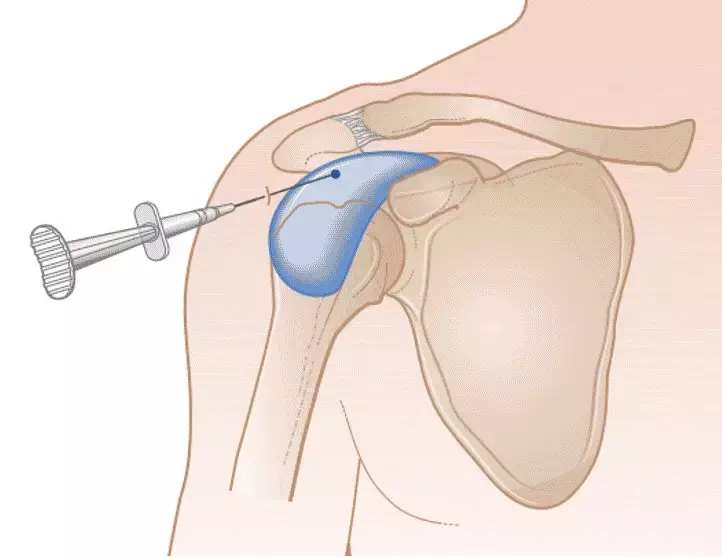- Home
- Medical news & Guidelines
- Anesthesiology
- Cardiology and CTVS
- Critical Care
- Dentistry
- Dermatology
- Diabetes and Endocrinology
- ENT
- Gastroenterology
- Medicine
- Nephrology
- Neurology
- Obstretics-Gynaecology
- Oncology
- Ophthalmology
- Orthopaedics
- Pediatrics-Neonatology
- Psychiatry
- Pulmonology
- Radiology
- Surgery
- Urology
- Laboratory Medicine
- Diet
- Nursing
- Paramedical
- Physiotherapy
- Health news
- Fact Check
- Bone Health Fact Check
- Brain Health Fact Check
- Cancer Related Fact Check
- Child Care Fact Check
- Dental and oral health fact check
- Diabetes and metabolic health fact check
- Diet and Nutrition Fact Check
- Eye and ENT Care Fact Check
- Fitness fact check
- Gut health fact check
- Heart health fact check
- Kidney health fact check
- Medical education fact check
- Men's health fact check
- Respiratory fact check
- Skin and hair care fact check
- Vaccine and Immunization fact check
- Women's health fact check
- AYUSH
- State News
- Andaman and Nicobar Islands
- Andhra Pradesh
- Arunachal Pradesh
- Assam
- Bihar
- Chandigarh
- Chattisgarh
- Dadra and Nagar Haveli
- Daman and Diu
- Delhi
- Goa
- Gujarat
- Haryana
- Himachal Pradesh
- Jammu & Kashmir
- Jharkhand
- Karnataka
- Kerala
- Ladakh
- Lakshadweep
- Madhya Pradesh
- Maharashtra
- Manipur
- Meghalaya
- Mizoram
- Nagaland
- Odisha
- Puducherry
- Punjab
- Rajasthan
- Sikkim
- Tamil Nadu
- Telangana
- Tripura
- Uttar Pradesh
- Uttrakhand
- West Bengal
- Medical Education
- Industry
Lyophilized growth factors injection significantly reduces pain in patients with subacromial impingement syndrome

A new patented blood product named lyophilized growth factors (L-GF), which is a refined modification of conventional PRP therapy, has been developed. It uses allogenic pathogen-free platelets with a standardized number instead of autologous platelets used in PRP as a source of growth factors. It showed encouraging results in patients with primary knee osteoarthritis with regard to pain, effusion and function, in addition to efficacy and safety in plantar fasciitis. This growing evidence supporting its safety and efficacy encourages further research to verify its utility as a treatment for a spectrum of musculoskeletal disorders, including subacromial impingement (SIS).
El Sherif et al conducted a study to evaluate the efficacy of L-GF injection versus placebo in SIS treatment. The study was conducted at Outpatient Clinic of Physical Medicine, Rheumatology and Rehabilitation Department, Alexandria University Hospitals. The article has been published in “Journal of Orthopaedic Surgery and Research.”
The randomized double-blind placebo-controlled study included sixty patients (40 females and 20 males, aged between 24 and 75 years) diagnosed with SIS (both clinically and sonographically). Patients were randomly assigned to two equal groups. Under ultrasound guidance, group 1 received subacromial saline injection, and group 2 received L-GF injection. Clinical examination, pain visual analogue scale (VAS), shoulder pain and disability index (SPADI) and shoulder ultrasound were performed before and at the 8th week after injection.
Key findings of the study are:
• There was no statistically significant difference between the two groups regarding patients’ age, gender, disease duration, occupation, handedness, side affected and its dominance.
• Follow-up assessment showed statistically significant improvement in the L-GF group regarding active flexion, active and passive internal rotation and extension, SPADI-disability scale, VAS and thickness of the supraspinatus tendon by US.
• Regression analysis showed that group 1 was approximately 30 times more likely than the L-GF group to experience painful arc at follow-up.
• Both groups showed statistically significant improvement in SPADI-pain scale and SPADI-total, flexion and abduction (still the mean value of abduction was significantly higher in the L-GF group).
The authors concluded that – “L-GF injection resulted in clinically significant reductions in pain and functional disability outcomes in patients with SIS. An objective significant reduction in the thickness of the supraspinatus tendon, measured by ultra sound, in the L-GF group hopefully encourages proper healing and functioning in SIS.”
Further reading:
Effectiveness of lyophilized growth factors injection for subacromial impingement syndrome: a prospective randomized double blind placebo controlled study
El Sherif et al.
Journal of Orthopaedic Surgery and Research (2023) 18:78
https://doi.org/10.1186/s13018-023-03548-4
MBBS, Dip. Ortho, DNB ortho, MNAMS
Dr Supreeth D R (MBBS, Dip. Ortho, DNB ortho, MNAMS) is a practicing orthopedician with interest in medical research and publishing articles. He completed MBBS from mysore medical college, dip ortho from Trivandrum medical college and sec. DNB from Manipal Hospital, Bengaluru. He has expirence of 7years in the field of orthopedics. He has presented scientific papers & posters in various state, national and international conferences. His interest in writing articles lead the way to join medical dialogues. He can be contacted at editorial@medicaldialogues.in.
Dr Kamal Kant Kohli-MBBS, DTCD- a chest specialist with more than 30 years of practice and a flair for writing clinical articles, Dr Kamal Kant Kohli joined Medical Dialogues as a Chief Editor of Medical News. Besides writing articles, as an editor, he proofreads and verifies all the medical content published on Medical Dialogues including those coming from journals, studies,medical conferences,guidelines etc. Email: drkohli@medicaldialogues.in. Contact no. 011-43720751


